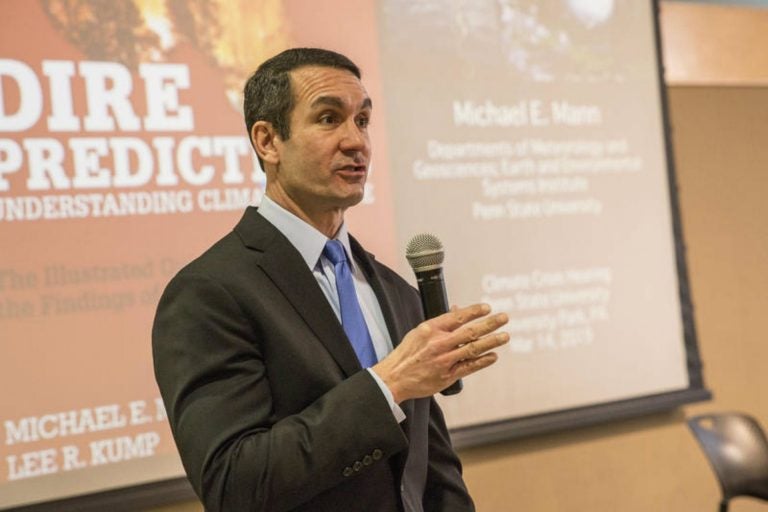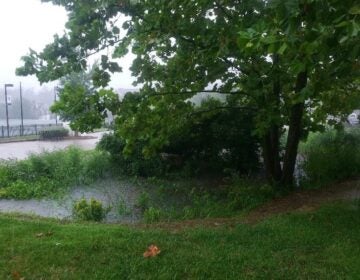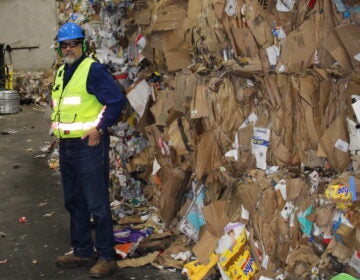Pa. auditor general on climate change: Each disaster is ‘a hit to the state’s taxpayers’
Pa. Auditor General Eugene DePasquale hosted a public hearing to gather input for a special report looking into the state’s response to climate change.

Pennsylvania Auditor General Eugene DePasquale hosted a public hearing on how the state is responding to climate change on Penn State’s University Park campus on March 14, 2019. It’s the first of three hearings DePasquale plans. (Min Xian/WPSU)
Pennsylvania Auditor General Eugene DePasquale hosted a public hearing on Penn State’s University Park campus on Thursday, to gather input for a special report looking into the state’s response to climate change.
DePasquale said climate change is both an environmental challenge and an economic challenge for the state and the country.
“As the state’s chief fiscal watchdog, my legal responsibility is finding out the economic impact to [climate change] – how it will hurt the state’s finances,” he said. “Every time there’s a disaster in Pennsylvania, it’s a hit to the state’s taxpayers, as opposed to if we were able to do something beforehand to mitigate this.”
DePasquale listened to testimony from local officials and agriculture advocates during the hearing. Panelists came from PennFuture, Borough of State College, Pennsylvania Association of Sustainable Agriculture and the Pa. Farm Bureau.
Penn State Distinguished Professor Michael Mann gave a presentation on the impacts of climate change around the globe and in Pennsylvania.
“Too often, we think of climate change as some far off, distant threat to polar bears in the Arctic, but in fact, it is impacting us here and now in Pennsylvania,” Mann said. “This is the face of climate change. It’s no longer subtle.”
Pennsylvania saw a record level of rainfall last year. According to the National Weather Service, the state had nearly 64 inches of rain in 2018, 50 percent more than normal. The intense precipitation has already prompted some Pennsylvania farmers to change their farming practices, which could make it costly to maintain soil health.
Mann said that changing weather patterns such as extreme heat waves and short-term droughts are going to threaten agriculture in the state. He advocated for lowering carbon emissions and moving from fossil fuels to renewable energy.
“If we don’t act on this problem, the impacts of climate change are going to exceed our adaptive capacity,” Mann said. “Pennsylvania can lead the way.”
The state’s Department of Environmental Protection publishes a climate action plan every three years. In the latest update in 2018, the DEP called for an 80 percent reduction of greenhouse gas emissions by 2050 from 2005 levels.
DePasquale said his report will “get an even broader perspective,” compared to the DEP reports. He plans to host two more public hearings in Pittsburgh and Philadelphia, and expects to publish his report this summer.
WHYY is your source for fact-based, in-depth journalism and information. As a nonprofit organization, we rely on financial support from readers like you. Please give today.






